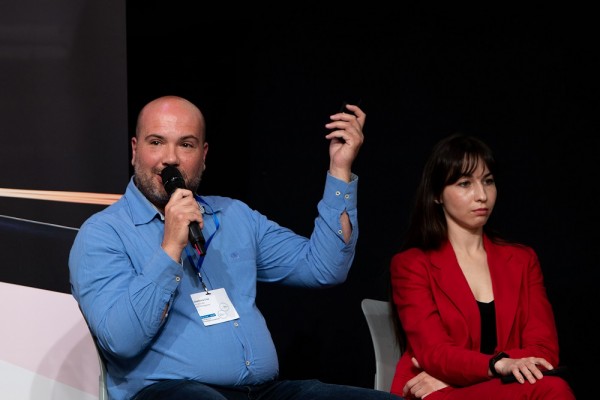The political conflict in Ivory Coast may be approaching an end after the recent arrest of former President Laurent Gbagbo, but journalists are still working in fear – of reprisals. In the last few months of the conflict, the Ivory Coast media was strongly polarized.
“Journalist have been attacked, and the publication of newspapers has been disrupted,” IPI Press Freedom & Communications Manager Anthony Mills said. “We call on all media personnel in Ivory Coast to support each other and demand that the authorities address this grave situation immediately.”
The conflict in Ivory Coast began after presidential elections last November. Then-President Laurent Gbagbo refused to give up power despite Alassane Ouattara being declared the winner by the national election commission. The United Nations and many other international organizations endorsed Ouattara and subsequently forces backing both leaders faced off in confrontations across the country that saw hundreds of people killed. The UN says that up to one million people have been forced to flee their homes.
Gbagbo was arrested on 11 April after a drawn-out conflict, and it is now hoped that the country will slowly recover. The recovery is especially vital for media personnel operating in the country who were consistently attacked and threatened during the conflict.
Soon after the results of the elections were announced, the Media Foundation for West Africa reported that authorities had clamped down on foreign media trying to cover the situation in the country. This was followed by articles in the state media and some pro-Gbagbo newspapers, such as Notre Vie, that fuelled a hostile viewpoint towards the French news media.
Before the end of December, Reporters Without Borders reported that the newspapers supporting Ouattara had been banned before subsequently returning to newsstands in an atmosphere that clearly hindered journalists in their work.
From then on a media war played out. Reporters kept plying their trade but were continuously threatened and forced to comply with instructions from the authorities. The UN said that its radio station, ONUCI FM, was banned by authorities but remained on air. An attempt to block several independent and pro-Ouattara websites was also made through a directive, a copy of which was subsequently obtained by Reporters Without Borders.
According to news reports, propaganda efforts led some to call Ivory Coast the victim of a conspiracy led by the UN and France to exploit the country’s natural resources. Negative coverage of Gbagbo was censored.
Reuters reported that a lack of information also meant that papers that remained independent, such as L’Inter and Soir Info, were forced to run propaganda from both factions and allow the readers to decide on their own. Publication of newspapers also suffered as several pro-Ouattara publications received death threats and had to stop their operations for a while.
The final step in the escalating media struggle came when the opposing forces fought to gain control of Abidjan, the commercial centre of the country. Already a propaganda tool, the media became a military target. According to news reports, RTI state television went off-air for a day, returning on 1 April, as a direct result of heavy fighting. The curfew in the city meant that reporters were not in a position to cover stories. Foreign media personnel were attacked and newspapers were not available in newsstands.

